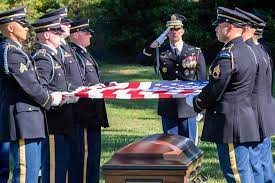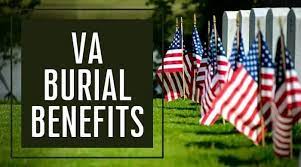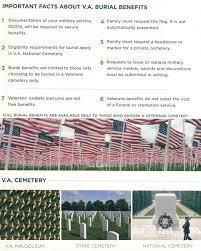Honoring Those Who Served: The Importance of Military Burial
When a member of the military passes away, their final farewell is often marked by a ceremony known as military burial. This solemn and dignified tradition holds great significance, not only for the departed soldier but also for their family and the entire nation. Military burial is a way to express gratitude, respect, and honor for those who have selflessly served their country.
One of the most recognizable elements of a military burial is the folding and presentation of the American flag. This symbolic act represents the appreciation and recognition of the deceased’s service to their country. The flag is meticulously folded into a triangular shape, with each fold carrying its own meaning. The final folded flag is then presented to the fallen soldier’s next of kin as a token of appreciation for their loved one’s sacrifice.
Another significant aspect of military burials is the playing of Taps, a hauntingly beautiful bugle call that signifies both mourning and remembrance. Originally composed as a signal to end each day in the military camps during the Civil War, Taps has become synonymous with honoring fallen soldiers. Its melancholic melody evokes deep emotions and serves as a poignant reminder of sacrifice and loss.
The firing of three volleys by a rifle party is another customary tribute during military burials. Known as the “21-gun salute,” this practice dates back to ancient times when it was believed that firing weapons would scare away evil spirits lurking near gravesites. Today, this act serves as an expression of respect and farewell to those who have served in uniform.
In addition to these ceremonial elements, military burials often include other traditions specific to different branches of service or cultural practices. These may include bagpipe performances, horse-drawn caissons carrying caskets, or even flyovers by military aircraft in honor of aviators.
Beyond these symbolic gestures, military burials also provide closure for grieving families. The military’s attention to detail and precision in executing these ceremonies helps create a sense of reverence and dignity. It offers comfort to the bereaved, knowing that their loved one’s service and sacrifice will be recognized and remembered by the nation they served.
Moreover, military burials serve as a reminder to society of the sacrifices made by our servicemen and women. They honor not only the individual being laid to rest but also all those who have served before them. These ceremonies reinforce the bond between the military and civilian communities, fostering a deep respect for those who protect our freedoms.
In conclusion, military burials hold immense significance in honoring those who have served in the armed forces. They provide a final tribute that acknowledges their sacrifice, expresses gratitude, and offers solace to grieving families. These traditions serve as a reminder of the courage, dedication, and selflessness exhibited by our brave men and women in uniform. Let us never forget their service and always honor them with the respect they deserve.
Frequently Asked Questions About Military Burial: Answers to Your Queries
- Do all military veterans get a military funeral?
- What disqualifies military burial?
- What is the protocol for a military funeral?
- What is included in a military burial?
Do all military veterans get a military funeral?
Not all military veterans are eligible for a full military funeral. The eligibility criteria for military funeral honors vary depending on several factors, including the veteran’s service record and the type of discharge they received. Generally, to be eligible for a military funeral, veterans must have been discharged under conditions other than dishonorable.
The United States Department of Defense provides guidelines for military funeral honors, which include the playing of Taps, the folding and presentation of the American flag, and the presence of an honor guard. These honors are typically provided by active duty or reserve component members of the same branch of service as the deceased veteran.
However, it’s important to note that not all veterans may receive these full honors. In some cases, due to limited resources or logistical constraints, partial military honors may be provided instead. These can include a smaller honor guard or a recorded version of Taps being played.
Additionally, family members may request military funeral honors for their loved ones even if they are not automatically entitled to them. This request can be made through the funeral home arranging the burial or by contacting the appropriate branch of service.
It is recommended that families consult with their local Veterans Affairs office or funeral home to determine eligibility and make arrangements for any desired military funeral honors. Each case is evaluated individually to ensure that veterans who have served honorably receive appropriate recognition and respect in their final farewell.
What disqualifies military burial?
While military burial is a deeply honorable and respected tradition, there are certain circumstances that may disqualify an individual from receiving this type of burial. The eligibility criteria for military burial are set by the Department of Defense and can vary depending on various factors, including the individual’s military service, discharge status, and other considerations. Here are some situations that may disqualify an individual from receiving military burial:
- Discharge Status: Generally, individuals who receive a dishonorable discharge from the military are not eligible for military burial. Dishonorable discharges are typically issued as a result of serious offenses or misconduct during military service.
- Criminal Convictions: If an individual has been convicted of a capital crime under civilian law, they may be disqualified from receiving military burial. This includes crimes such as murder, treason, or espionage.
- Desertion: Those who have deserted the armed forces and were subsequently convicted under court-martial may be ineligible for military burial.
- Non-Service Related Deaths: Military burials are typically reserved for those who died while on active duty, in the line of duty, or as a result of injuries sustained during their service. In general, individuals who die due to non-service-related causes may not qualify for military burial.
- Lack of Veteran Status: Military burials are primarily reserved for veterans who have served in the armed forces and were honorably discharged. Individuals who did not serve in the military or did not complete their required service obligations may not be eligible for this type of burial.
It’s important to note that these eligibility criteria can be complex and subject to specific regulations that may change over time. Families seeking information about military burials should consult with their local Veterans Affairs office or funeral directors with experience in arranging veteran funerals to understand the specific requirements and options available to them based on their loved one’s circumstances.
While not everyone may qualify for a military burial, there are other options available to honor and remember the service of individuals who do not meet the eligibility criteria. These alternatives may include cemetery plots in veteran-specific sections, the display of military honors during a civilian funeral, or the inclusion of military symbols or flags as part of the funeral proceedings.
What is the protocol for a military funeral?
The protocol for a military funeral follows a structured and respectful process to honor the deceased service member. While specific details may vary depending on the branch of service and the rank of the individual, here is a general outline of the protocol:
- Notification: Upon the passing of a service member, their next of kin or designated representative should inform the appropriate military authorities, such as the Casualty Assistance Officer or Funeral Honors Coordinator.
- Coordination: The family will work closely with military representatives to coordinate the funeral arrangements. This includes selecting a date, time, and location for the ceremony.
- Honor Guard: An honor guard is typically assigned to perform ceremonial duties at military funerals. This group consists of uniformed service members who will carry out various tasks during the ceremony.
- Flag Presentation: A key element of a military funeral is the presentation of an American flag to the next of kin. The flag is usually draped over the casket during transport and then carefully folded by members of the honor guard before being presented to the family.
- Taps: The bugle call Taps is played by a bugler or performed using a recording. This haunting melody is traditionally played at military funerals as a final farewell to honor and remember fallen service members.
- Rifle Salute: A rifle party, typically consisting of three to seven uniformed personnel, will fire three volleys in unison as a salute to pay respects to their fallen comrade.
- Military Chaplain or Clergy: If requested by the family, a military chaplain or clergy member may lead prayers or deliver religious services according to their beliefs.
- Military Honors: Depending on eligibility and availability, additional honors may be rendered during the ceremony, such as flyovers by aircraft or performances by bagpipers for specific branches or cultural traditions.
- Burial Site Procedures: Following any religious rites or additional honors, if applicable, the casket is transported to the gravesite. At the burial site, the honor guard will perform a final series of ceremonial duties, including folding and presenting the flag to the next of kin.
It’s important to note that these are general guidelines, and specific details may vary based on factors such as rank, branch of service, and personal preferences. Families should work closely with military representatives to ensure all necessary arrangements are made and that their loved one receives a fitting tribute for their service.
What is included in a military burial?
A military burial typically includes several key elements that honor and pay tribute to the deceased individual’s military service. While specific details may vary depending on factors such as branch of service, rank, and personal preferences, the following components are commonly observed:
- Flag Presentation: One of the most significant aspects of a military burial is the folding and presentation of the American flag. A uniformed member of the deceased’s branch of service meticulously folds the flag into a triangular shape, symbolizing honor and respect. The folded flag is then presented to the next of kin as a token of appreciation for their loved one’s service.
- Taps: The playing of Taps is a poignant bugle call that signifies mourning and remembrance. This haunting melody is traditionally performed by a bugler or through recorded means. Taps serves as a solemn tribute to honor the fallen soldier.
- Rifle Salute: A rifle party consisting of an odd number (often three) of uniformed personnel fires three volleys in unison, creating what is commonly known as the “21-gun salute.” This act symbolizes respect and farewell to the deceased individual’s military service.
- Military Honors Detail: A designated military honors detail, often composed of active duty or reserve members from the same branch as the deceased, carries out various ceremonial duties during the burial. This may include flag folding, rifle salutes, and other customs specific to each branch.
- Headstone or Marker: In national cemeteries or designated burial grounds, a government-furnished headstone or marker is provided to mark the final resting place. These markers typically display information such as name, rank, branch of service, dates of birth and death, and any applicable symbols representing religious beliefs or awards earned.
- Funeral Escort: Depending on available resources and family preferences, military funeral escorts may be provided for transportation purposes. This can involve an escort vehicle leading the procession or a military honor guard accompanying the casket.
- Additional Traditions: Depending on the deceased individual’s branch of service, cultural background, or personal requests, other customs may be included in the military burial. These can range from bagpipe performances, horse-drawn caissons, or flyovers by military aircraft to honor aviators.
It’s important to note that while these elements are commonly observed in military burials, specific arrangements and customs may differ based on individual circumstances and family preferences. The military strives to ensure that each burial is conducted with dignity, respect, and proper recognition of the deceased’s service to their country.




